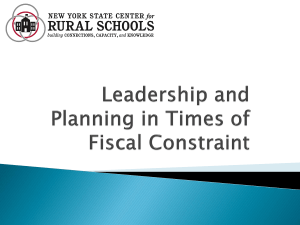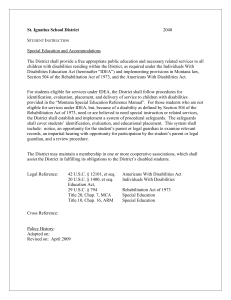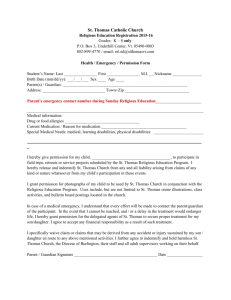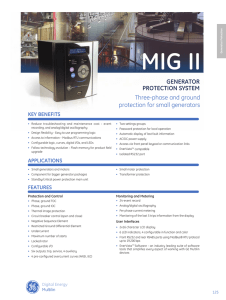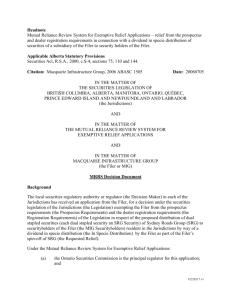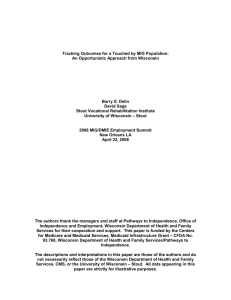ITOP Council Minutes.. - Improving Transition Outcomes Project
advertisement
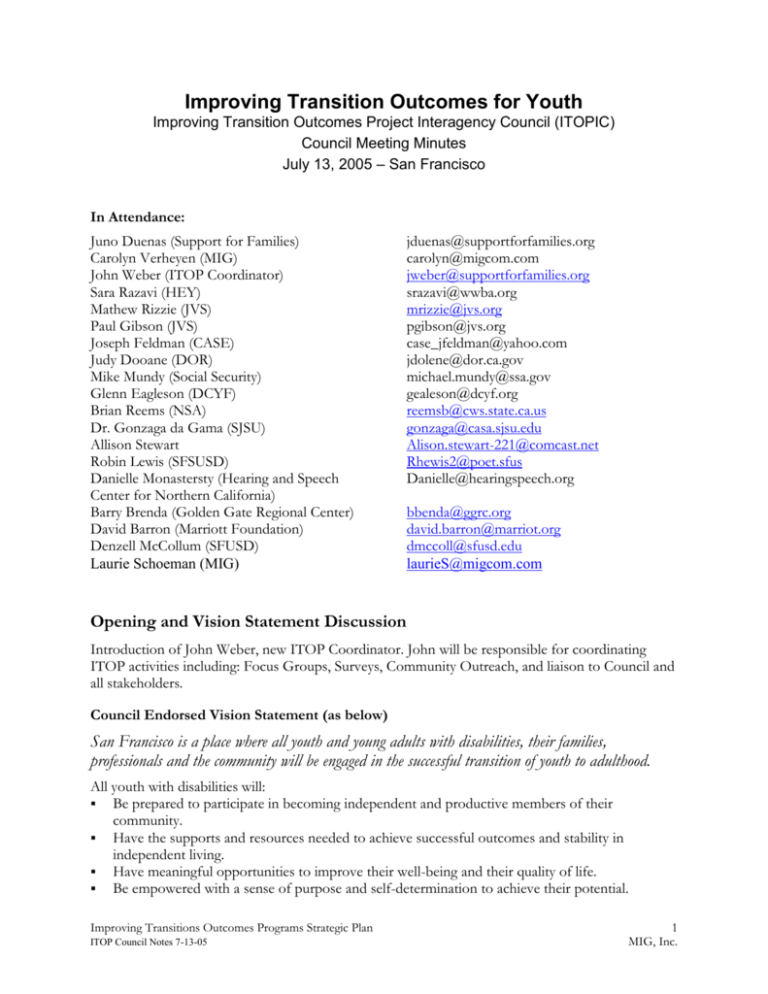
Improving Transition Outcomes for Youth Improving Transition Outcomes Project Interagency Council (ITOPIC) Council Meeting Minutes July 13, 2005 – San Francisco In Attendance: Juno Duenas (Support for Families) Carolyn Verheyen (MIG) John Weber (ITOP Coordinator) Sara Razavi (HEY) Mathew Rizzie (JVS) Paul Gibson (JVS) Joseph Feldman (CASE) Judy Dooane (DOR) Mike Mundy (Social Security) Glenn Eagleson (DCYF) Brian Reems (NSA) Dr. Gonzaga da Gama (SJSU) Allison Stewart Robin Lewis (SFSUSD) Danielle Monastersty (Hearing and Speech Center for Northern California) Barry Brenda (Golden Gate Regional Center) David Barron (Marriott Foundation) Denzell McCollum (SFUSD) Laurie Schoeman (MIG) jduenas@supportforfamilies.org carolyn@migcom.com jweber@supportforfamilies.org srazavi@wwba.org mrizzie@jvs.org pgibson@jvs.org case_jfeldman@yahoo.com jdolene@dor.ca.gov michael.mundy@ssa.gov gealeson@dcyf.org reemsb@cws.state.ca.us gonzaga@casa.sjsu.edu Alison.stewart-221@comcast.net Rhewis2@poet.sfus Danielle@hearingspeech.org bbenda@ggrc.org david.barron@marriot.org dmccoll@sfusd.edu laurieS@migcom.com Opening and Vision Statement Discussion Introduction of John Weber, new ITOP Coordinator. John will be responsible for coordinating ITOP activities including: Focus Groups, Surveys, Community Outreach, and liaison to Council and all stakeholders. Council Endorsed Vision Statement (as below) San Francisco is a place where all youth and young adults with disabilities, their families, professionals and the community will be engaged in the successful transition of youth to adulthood. All youth with disabilities will: Be prepared to participate in becoming independent and productive members of their community. Have the supports and resources needed to achieve successful outcomes and stability in independent living. Have meaningful opportunities to improve their well-being and their quality of life. Be empowered with a sense of purpose and self-determination to achieve their potential. Improving Transitions Outcomes Programs Strategic Plan ITOP Council Notes 7-13-05 1 MIG, Inc. All families of youth with disabilities will: Be empowered with the knowledge and opportunities needed to prepare their child for the future. Have the supports and resources in their community needed to assist their child. Have a supportive and meaningful relationship with their child in making the transition to adulthood. Be engaged with their child in developing and implementing their transition goals and services. All professionals serving youth with disabilities will: Be valued for what they do with opportunities to learn and grow in their work. Have the supports and resources needed to achieve positive transition outcomes for the youth that they serve. Ensure that youth receive culturally competent and appropriate services to achieve their transition goals. Educate families and the community about the needs of transition for youth with disabilities. Discussion on Focus Groups 8 participants in each focus group. Parent/Guardian Focus Group Youth Focus Group Provider Focus Group (Still to be determined) Analysis of FG’s should be done as soon as each Focus Group is completed. Each Focus Group session should build on the previous one. If you wait until you have completed all focus groups, you will lose opportunity to apply what you have learned previously. Parent/Guardian Focus Group Approach Two Parent/Guardian focus groups approach in English. Two in Cantonese. Two in Spanish. Start off the Parent/Guardian group by defining “ transition”. Youth Focus Group Approach Youth focus groups include: Six Youth Focus Groups will be conducted: Youth with Developmental Delays, Youth with Physical Disabilities, Youth with Learning Disabilities, Youth with Mental Health Challenges (which can be incorporated into Prop 63 Meetings), Youth in Foster Care, Youth in Juvenile Justice System. Care should be taken when selecting adult facilitator as well as peer facilitator. John will take lead in the facilitation of groups and feels very comfortable working with a variety of youth. Team needs to research consent laws and develop/generate a clear consent form for youth before the group commences to safeguard integrity of the project. Encourage facilitators to begin focus groups with a “warm up” and contextualize the focus group meeting by stating the mission of project and intent of focus group. Youth in Foster Care. Some foster kids move around so much that Coordinators of Focus Groups should capture particular kids as soon as they show interest in FG. Eventually youth will be joining the Council and sitting at the table Youth with Developmental Delays. Parents should be involved in the focus groups. It would be a lot more comfortable for the participants. Improving Transitions Outcomes Programs Strategic Plan ITOP Council Notes 7-13-05 2 MIG, Inc. Discussion of Landscape Document How much detail do we want to include in document? What is the goal of the landscape? MIG will bring in a sample landscape outline for next Council meeting. Next Steps Next Council Meeting Wednesday August 10th 1:00pm-3:00pm at Support for Families. Items to be discussed: Provider Survey Draft, Landscape Outline, Parent Survey, Update on Youth Groups. Improving Transitions Outcomes Programs Strategic Plan ITOP Council Notes 7-13-05 3 MIG, Inc.


